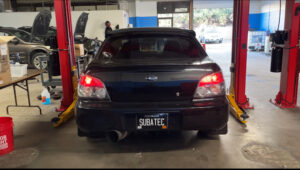
Liquor Delivery App Development
Customers now use alcohol delivery apps to shop for liquor through a new system which delivers immediate access and convenience to their purchases. Users now have the ability to place their beverage orders at licensed retailers which effortlessly send their chosen items to the customer’s address without leaving home. The alcohol delivery market expansion occurs because customers want immediate services and they increasingly prefer digital shopping methods.
The Liquor Delivery App Development enables businesses to adopt Artificial intelligence and blockchain and automated logistics systems technology. Entrepreneurs together with investors can access diverse business chances in the expanding market of alcohol delivery to benefit from the advancing industry.
The Rise of Liquor Delivery Apps: How They Are Changing the Alcohol Industry
Historically the alcohol industry made its sales through retail locations bars and restaurants. Liquor delivery applications shifted the whole alcohol commerce industry by opening up easy accessibility to alcohol products while giving shoppers enhanced convenience and transforming how people buy.
Key Changes in the Industry:
- Convenience and Accessibility: The smartphone provides an easy method for customers to order alcohol which eliminates the need to go to the store.
- Broader Market Reach: Small, independent liquor stores can extend their business to new customer bases through app sales.
- Regulatory Compliance: Many apps now include age verification and licensing features into their app to ensure responsible alcohol sales.
- Data-Driven Insights:Businesses have begun leveraging consumer behavior analytics to develop more sophisticated marketing approaches and offerings.
5 Most Popular Liquor Delivery Apps of the US in 2025
As the market develops, many liquor delivery apps have risen to the top of the industry. The following is a list of the five best liquor delivery apps in 2025 in the US:
1. Drizly:
Drizly is one of the most well-known liquor delivery apps in the US, offering delivery from local liquor stores, all while providing a wide variety of alcohol to choose from.
2. Saucey
Saucey is known for its late-night liquor delivery service and no minimum order requirement, perfect for the consumer who’s looking for instant alcohol delivery.
3. Minibar Delivery
This app focuses on its premium spirits and wine selection by offering curated selections to the discerning liquor drinkers.
4. Instacart Alcohol Delivery
Instacart is a grocery/iOt grocery delivery app that now allows the features to deliver alcohol by offering delivery from liquor stores and supermarkets.
5. GoPuff
GoPuff uses a central distribution model so they can deliver beer, wine, and spirits quickly without relying on retailers
Top Trends in Liquor Delivery App Development in 2025
The liquor delivery market is developing quickly due to innovative technology and evolving consumer behaviors. The trends below are what is influencing Liquor Delivery App Development in 2025.
1. AI-Powered Personalization
Apps are leveraging artificial intelligence to recommend products to users based on their prior purchases and other consumer preferences.
2. Blockchain for Transparency
Blockchain technology is enabling only legitimate transaction and preventing counterfeit liquor sales.
3.Voice-Activated Ordering
Integrating your app with smart assistants like Alexa and Google Assistant provides customers with hands-free ordering capabilities.
4. Drone & Autonomous Deliveries
Several companies are investigating the feasibility of drone delivery to minimize logistics costs and hasten delivery.
5. Subscription-Based Models
Liquor apps are rolling out monthly subscriptions which allow customers to receive exclusive discounts on curated products.
What Are the Best 5 Investment Opportunities in the Liquor Delivery App Market?
1. Investing in Liquor Delivery Startups
Given the popularity of alcohol delivery, there are new startups emerging on the market which provide investors opportunities to enter the marketplace early.
2. Developing White-Label Liquor Delivery Solutions
Entrepreneurs can invest in an affordable app development company to develop white-label liquor delivery applications for liquor retailers and let them build their own branded app.
3. Funding AI and Automation Technologies
Investing in AI-based recommendation engines, automated warehouses, and smart logistics can spur innovation in the industry.
4. Expanding into Niche Markets
There is a considerable opportunity in niche liquor markets, especially in areas like craft beer delivery, premium wine subscriptions, and allyship with local craft distilleries.
5. Acquiring Existing Liquor Delivery Businesses
Existing liquor delivery brands are open to investor opportunities such as acquisition, partnership, or franchise purchase.
How to Monetize Your Liquor Delivery App for Maximum Profits
1. Delivery Fees
Charge a customer a standard or dynamic delivery fee based on distance or convenience fee.
2. Commission from Retailers
Liquor stores listed on your platform pay you a commission for their product sale through the app.
3. Subscription Models
Offer a premium membership that allows customers to pay a monthly fee for benefits like free delivery, exclusive discounts, or a priority queue.
4. In-App Advertising
Generate revenue by permitting liquor brands to advertise in your app.
5. Partnerships with Local Bars & Restaurants
Partner with bars and restaurants to allow them to sell their liquor in bulk and provide free delivery and catering.
What is the Mobile App Development Lifecycle of Alcohol Delivery Applications?
The development of a liquor delivery app will adhere to the Mobile App Development LifeCycle and it includes following steps:
- Market Research & Planning:Research competitors, target audience, and industry trends.
- UI/UX Design: Designing an easy and engaging experience for the user.
- App Development: Selecting the best tech stack for the application to work flawlessly.
- Testing & Quality Assurance: Test thoroughly to guarantee the delivery experience has no bugs.
- Deployment & Launch: Launch the app across all platforms (iOS/Android/Web).
- Maintenance & Updates: Regularly update the application with new features and security fixes.
Understanding Alcohol Licensing Laws for Online Liquor Sales
Alcohol sales and delivery laws differ from state to state and from country to country. It is very important to know what you need to be compliant to run a liquor delivery business.Important check list items:-
Key Considerations:
- Age Verification:- This implements the ID Verification Scans.
- State-Specific Laws:– Complying Alcohol delivery laws state-to-state.
- Liquor License Requirements:– Obtaining licenses and permits online sales.
- Taxation & Compliance:– Local tax regulations for alcohol sales.
Conclusion
The liquor delivery app space has tremendous investment potential for individuals or companies.Businesses that invest in liquor delivery solutions will achieve substantial returns because consumers actively seek convenience at a rate which technology develops rapidly. It is vital to understand market trends combined with industrial knowledge and regulatory requirements when selecting between new startup investments or business acquisitions or developing novel apps. As technology continues to develop through AI and automation, the liquor delivery business model will be better positioned, allowing partnerships to flourish, as the liquor business veterinarian establishes and operational profit generates excitement at a regular cadence through 2025 and beyond.




